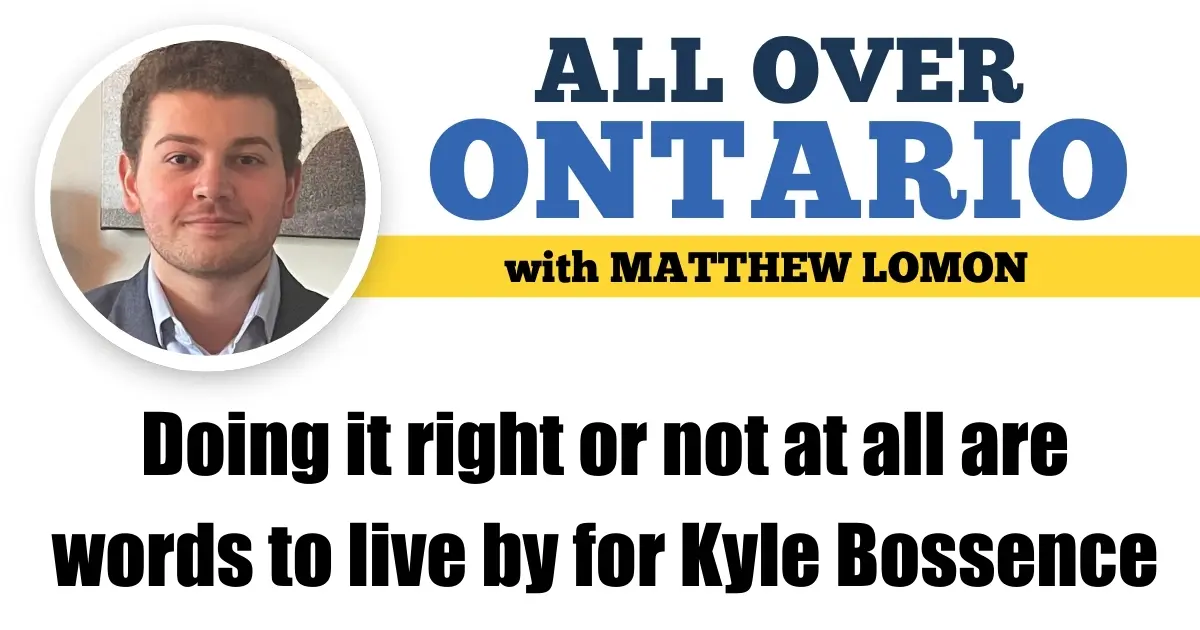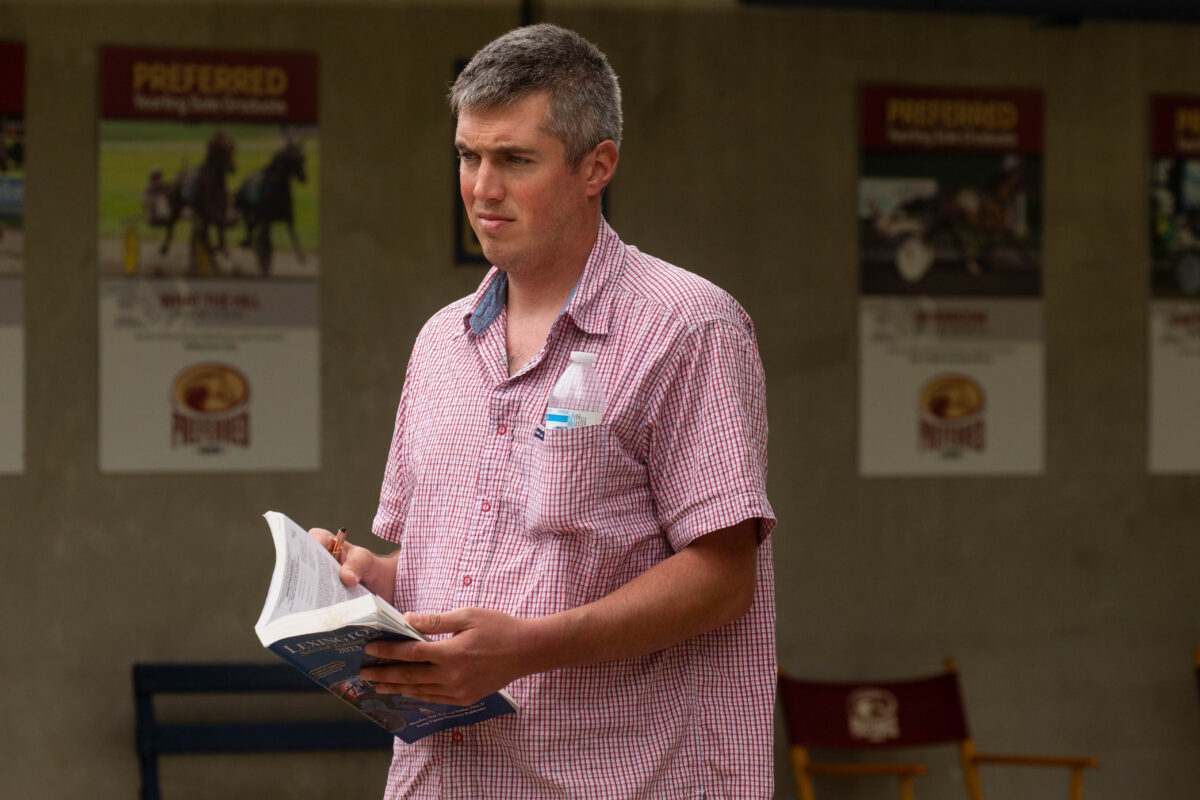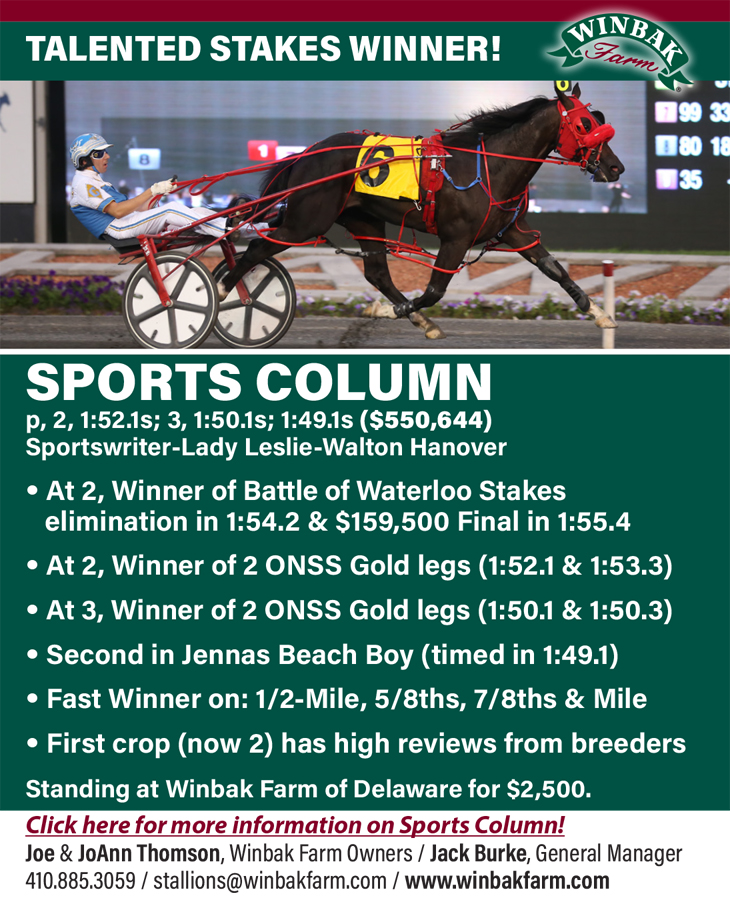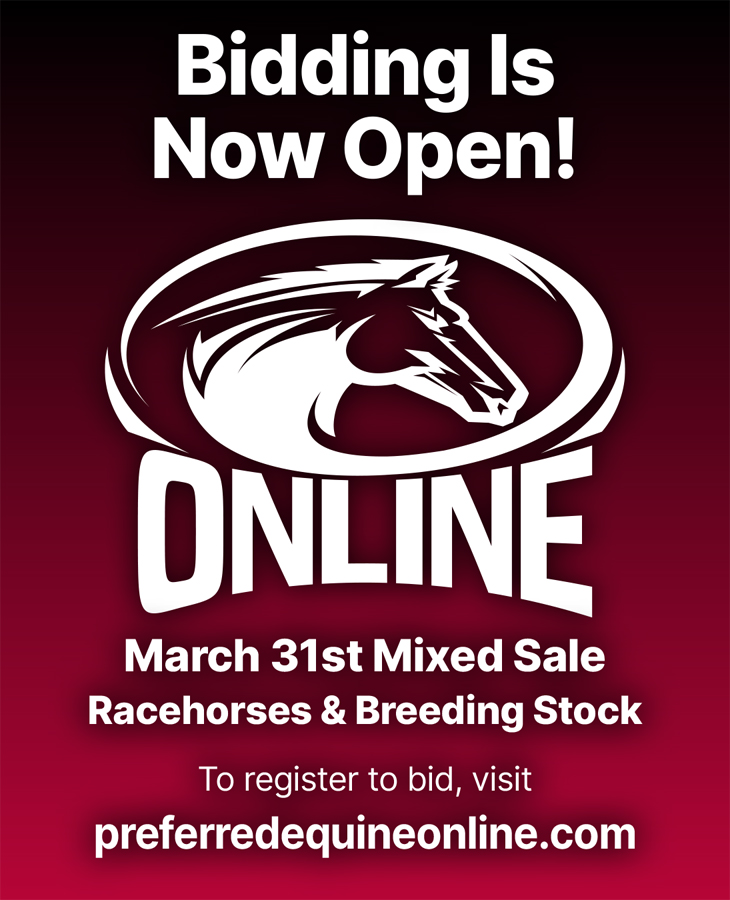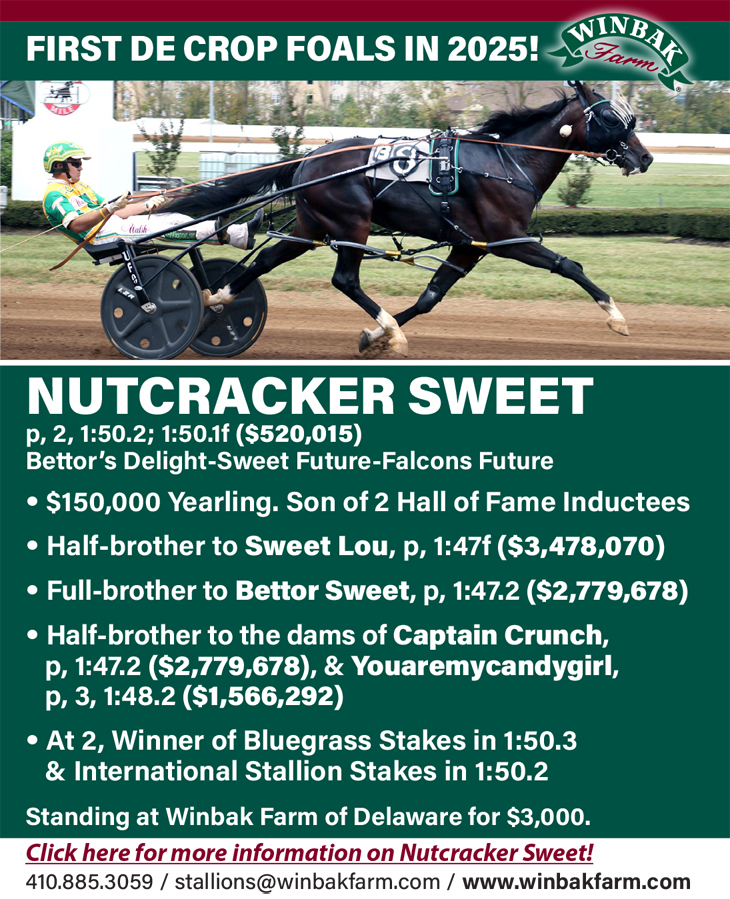Doing it right or not at all are words to live by for Kyle Bossence
by Matthew Lomon
If you’re going to do something, do it right or don’t do it at all.
These are the wise words a young Kyle Bossence first heard from his late grandfather that shaped the now 33-year-old trainer’s approach to, as he puts it, “just about everything.”
“It’s something I’ve lived by my whole life, no matter what I was doing,” Bossence said. “Whether it’s been horses, working for other people, farming, excavating, you name it, those words have stuck with me my whole life.”
The sage advice has proven invaluable for the well rounded Bossence throughout his eight-year career on the Ontario standardbred circuit.
But like countless others who dedicate their lives to the industry, the native of Arthur, ON, a community of just over 2,600, knows it’s all about perspective.
“We take things day-by-day,” said Bossence. “I’m a pretty easy going, ‘look at the positive side’ kind of person as is, which helps. I always look at the upside of every situation and I guess I’m lucky to be wired that way.”
Bossence’s even-keeled, yet optimistic outlook has been a boon during a 2024 campaign that hasn’t matched his expectations following a breakthrough year in 2023.
Last season, Bossence cleared the $1-million purse-earnings benchmark for the first time after his pupils recorded a 54-50-61 line across 593 starts.
“You just learn to take the good with the bad,” he said. “This year’s obviously not quite as good as last year was going with 2-year-olds. But you know going in that not every year is going to be as good as others. You have to keep your head up and keep on going.”
The arrow is pointing up, however, after a memorable Labor Day Weekend.
On Aug. 30, recent acquisition Cheese Party, a 3-year-old pacing filly whom Bossence purchased in June, crossed the finish line in 1:51.4 to take an Ontario Sires Stakes Prospects Series tilt at Mohawk.
The festivities continued the following day with 11-year-old trotter Willyorwonthe, who scored his second consecutive victory, and 54th overall through 237 starts (54-28-33).
While wins are the name of the game, it was an improbable — at least from what the tote board suggested — effort from battle-tested 3-year-old bay colt Masstercraft (18 3-3-4) that defined the weekend that was.
Under a brilliant trip from driver Trevor Henry, the trotter, at 98-1, finished second in the $164,000 Simcoe at Mohawk.
“We were really happy with the way he raced last time out at Grand River being parked the whole mile,” Bossence said. “And, before that, the win he had in the [OSS Gold] Mid-Season consolation. He got really sick on us after the Good Times there, so we’re just happy to see him healthy and win that one.
“Then heading into the Simcoe, we knew he was getting better and better. The only part that we weren’t too sure on was drawing the 9-hole. Other than that, we were pretty confident in him going in. I mean, we weren’t expecting a win, but we were hoping he could be right there for it.”
Those aren’t the only protégé’s Bossence is bullish about.
The bay trotter he speaks of no doubt has talent, but a stubborn streak can, at times, make it a coin toss as to how she will fare any given night.
“We have Valuable Miss, too,” Bossence said, adding with a laugh, “She’s a filly who’s got a mind of her own. Like [Trevor Henry] says every time he walks over to the bike, ‘What kind of a mood is she in tonight?’
“It’s hit and a miss with her. We try to do our best to keep her happy but some nights, she’s just in one of those moods where she doesn’t want to play too much. Other nights, when she is in the right mood, she’s pretty tough to beat.”
Figuring out horses doesn’t begin the moment they enter the Bossence barn for the first time.
When it comes to the sales, it is a combination of homework, a little luck, and embracing the unknown.
The only guarantee when it comes to buying a horse, either for himself or one of his owners?
There are none.
Going into the yearling sales, it’s a huge gamble,” Bossence said. “It doesn’t really matter what pedigree or what you pay for any of them. It doesn’t mean the outcome is going to be the same as the horse’s family or siblings or anything like that.
“At the sales, I look for traits that I’ve had luck with in the past. For one thing, I always look for medium, average-sized horses. I don’t like them too big and I don’t like them too small. So far, I’ve had the best luck with your average-sized horses. That’s what I tend to look for.”
Bossence keeps an open mind and open eyes throughout the racing season.
He weighs a number of factors in his assessment of pacers and trotters.
“I try to pay attention to the good horses every year; try to watch them and take note of what they look like and their features, etc.” he said. “I know that some years you’ll see a horse on the smaller side do well, but on average, it’s usually your nice, mid-sized horses that seem to do the best.
“Obviously, the bigger the horse, the harder on them it’s going to be — the more weight they have to carry and the speeds they have to hit nowadays — you have to factor it all in.”
The path to developing the next champion racehorse may be winding, and often perplexing, but it always leads Bossence back home.
“My wife, Tamara and I, we’ve been in this pretty well since the start together,” he said. “Our kids are in the barn every day with us, too. My dad [Ron Bossence] works in the summer, but he’s here pretty much all winter, and he loves it just as much as I do. He’s always there to help as much as he can.
“There’s nothing better than doing something you love with family and friends. It’s been a great ride so far, and hopefully, for many more years to come.”







